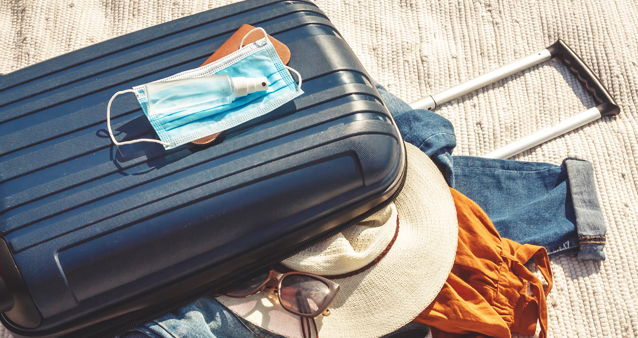If I Travel and Get Stuck in Lockdown, Will My Medical Aid And/or Travel Insurance Cover Me?

Local and international travel will continue to carry certain risks in 2021. What are your options if your trip is derailed?
With the second wave hitting South Africa in late 2020, and the end of the pandemic not in sight just yet, travel, especially for holidays, will remain tricky, so here is what you can expect from your medical aid and travel insurance.
Will your medical aid cover you if you get COVID-19 during your trip?
Yes. If you're already on a medical aid, you should be covered locally for COVID-19 as it falls within the prescribed minimum benefits. Momentum Medical Scheme, for example, says it will cover all costs for diagnosis and treatment if it is confirmed that you have coronavirus (COVID-19), irrespective of your chosen benefit option.
But access to medical care is just the start of it. A positive COVID-19 diagnosis could also mean cancelled bookings for local flights and accommodation. That's where travel insurance comes in: by taking out travel insurance for this trip, you're making double sure that should something happen on your holiday, your most important costs are covered.
Read more: What We Learned About Medical Aid in 2020
Remember though, travel insurance doesn't cover everything
Most South African travel insurance policies will cover cancellations of pre-paid flights and accommodation if you fall ill or are placed in quarantine due to COVID-19. But – as Discovery makes clear – travel insurance typically will not cover an unconfirmed diagnosis of COVID-19. Similarly, if you cancel your flights or accommodation just because you have health concerns, your travel insurance won't cover you (after all, you're choosing not to travel).
What if you're 'stuck' on holiday?
You're unlikely to get stranded on holiday if you're travelling locally: even if a hard lockdown were to be reintroduced, you'll likely have a few days' notice... and wherever you are in the country, home will only be a few hours' drive away.
It gets more complicated if you're travelling overseas, though. Your travel insurance will only cover you for medical and travel expenses related to medical emergencies beyond your or the carrier's control. That means you won't be covered if you choose to cancel or change your flight due to an outbreak, or if the carrier cancels your flight, cruise or train due to an outbreak or any other reason.
"In the event where the carrier cancels your flight, cruise or train journey, you must claim from the carrier directly," says Discovery. "Each carrier has its own cancellation processes. Some carriers may even waive cancellation fees and penalties. It is important that you contact your carrier for more information regarding policies, processes and applicable cancellation fees or charges."
Remember, also, that if you do decide to travel internationally, you'll have to provide a negative PCR test – which tests for the presence of the coronavirus, unlike other types of tests which find the antibodies your body produces in response to an infection – both when you leave and return, and, of course, should you return with COVID-19, you'll have to quarantine.
If 2020 has taught us anything, it's that you need to plan for the unexpected. Before you leave – even if it's just for a local road trip to the coast – contact your travel insurance company and find out what extensions you can apply to your policies.
Having read all this, it's clear that international travel is still a high risk for now. It's also clear that if you haven't taken the time to take out a medical aid policy, now's the time to do it. The medical aid comparison tool on our site allows you to compare medical aid quotes from South Africa's leading health insurers, so you can compare and find the one that suits you best with just a few clicks.
This article is for informational purposes only and should not be construed as financial, legal or medical advice.
Hippo Blog Categories

































